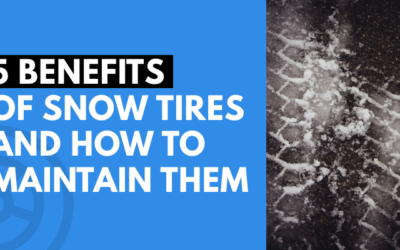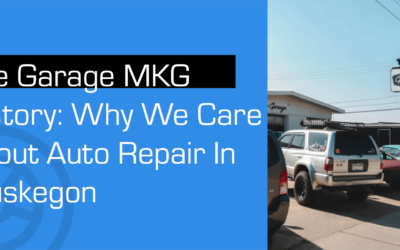What Is An Engine Air Filter?
Most vehicles on the road are powered by internal combustion engines – which are essentially metal boxes that produce controlled explosions by compressing air and fuel in a cylinder, and then igniting it, forcing many other smaller metal bits to spin and power your vehicle. The air needed to produce these explosions, in most modern vehicles, is drawn into the engine through an array of plastic or metal tubing, known as an air intake. But, the outside air is full of things like bugs, dust, rain, sand, and other various substances that aren’t good for your engine to inhale. Because of that, most vehicles have an air filter, made of rubber, paper, and metal, to seal off your engine from any harm. These air filters are recommended to be replaced several times through the life of the vehicle by most auto manufacturers – usually, these service intervals are between 10,000 and 50,000 miles or periods of time (usually in years), depending on a variety of conditions.
What Is A Cabin Air Filter?
 In addition to the engine air filter, many late model vehicles are also equipped with cabin air filters. Similar to the engine, your vehicle’s climate control system (heat and A/C) utilizes the air outside your vehicle to function. Because of this, your climate control system is exposed to the same ‘hazards’ as above – and thus, the system has its own air filter. These air filters range more heavily in materials compared to engine air filters – with some vehicles having easily accessible paper filters, and others having more complex units with wire grating and charcoal filters. But, in concept, they work in a virtually identical manner to engine air filters, and also usually have a recommended replacement interval, set at different points according to each manufacturer.
In addition to the engine air filter, many late model vehicles are also equipped with cabin air filters. Similar to the engine, your vehicle’s climate control system (heat and A/C) utilizes the air outside your vehicle to function. Because of this, your climate control system is exposed to the same ‘hazards’ as above – and thus, the system has its own air filter. These air filters range more heavily in materials compared to engine air filters – with some vehicles having easily accessible paper filters, and others having more complex units with wire grating and charcoal filters. But, in concept, they work in a virtually identical manner to engine air filters, and also usually have a recommended replacement interval, set at different points according to each manufacturer.
Why Should You Change Your Engine Air Filter?
 Engines are complex machines that have infinite amounts of variables that can affect their performance. In late model, fuel-injected vehicles, an onboard computer, otherwise known as an ECU, tells your engine how much fuel & air need to go into each cylinder at any given time. Then, that computer monitors the exhaust gas from that cylinder to make sure it is firing ‘correctly’. If the computer detects any discrepancies, measured through O2, it will tell the fuel injectors to add more or less fuel, the next time the cylinder fires. In short: if your air filter is clogged with debris, your engine has less air to breathe. To compensate for less air, the computer will add less fuel to maintain the proper mixture. Modern, fuel-injected vehicles aren’t as sensitive as older cars are to air filters impacting gas mileage, but the computer eventually can’t overcome the blockage of air, leading to worse performance & economy from your vehicle. It’ll be nearly unnoticeable from the driver seat – a little loss of power, but where you’ll eventually feel this effect the most, is at the gas pump. If you average 30MPG for 10,000 miles, you will consume 333 gallons of gas. If you average 31MPG, only a 1MPG (3%) increase, that number drops to 322 gallons of gas. These numbers will always vary, but 11 gallons of gas is far more expensive than most engine air filters, at least in Muskegon, MI – so economically, it’s a sound decision to replace it as needed. And, you also get the added bonus of more performance from your vehicle!
Engines are complex machines that have infinite amounts of variables that can affect their performance. In late model, fuel-injected vehicles, an onboard computer, otherwise known as an ECU, tells your engine how much fuel & air need to go into each cylinder at any given time. Then, that computer monitors the exhaust gas from that cylinder to make sure it is firing ‘correctly’. If the computer detects any discrepancies, measured through O2, it will tell the fuel injectors to add more or less fuel, the next time the cylinder fires. In short: if your air filter is clogged with debris, your engine has less air to breathe. To compensate for less air, the computer will add less fuel to maintain the proper mixture. Modern, fuel-injected vehicles aren’t as sensitive as older cars are to air filters impacting gas mileage, but the computer eventually can’t overcome the blockage of air, leading to worse performance & economy from your vehicle. It’ll be nearly unnoticeable from the driver seat – a little loss of power, but where you’ll eventually feel this effect the most, is at the gas pump. If you average 30MPG for 10,000 miles, you will consume 333 gallons of gas. If you average 31MPG, only a 1MPG (3%) increase, that number drops to 322 gallons of gas. These numbers will always vary, but 11 gallons of gas is far more expensive than most engine air filters, at least in Muskegon, MI – so economically, it’s a sound decision to replace it as needed. And, you also get the added bonus of more performance from your vehicle!
Why Should You Change Your Cabin Air Filter?
 The reason behind why you should replace your cabin air filter mostly boils down to your health and safety. If your cabin air filter becomes clogged or dirty, it may put more strain on the internal components of your climate control system (such as your blower motor), but it also presents the risk of a health hazard. A clean cabin air filter doesn’t just block the bugs from getting into your car – it also reduces the amount of allergens and pollution that enters the interior of your vehicle – this is especially important for people who live in populated areas that have constant vehicle traffic. By ensuring the air that’s being blown onto you by your climate control is clean, you can not only rest assured that you’ll be breathing better, but your car will actually stay cleaner due to the decrease in particles coming through the air vents!
The reason behind why you should replace your cabin air filter mostly boils down to your health and safety. If your cabin air filter becomes clogged or dirty, it may put more strain on the internal components of your climate control system (such as your blower motor), but it also presents the risk of a health hazard. A clean cabin air filter doesn’t just block the bugs from getting into your car – it also reduces the amount of allergens and pollution that enters the interior of your vehicle – this is especially important for people who live in populated areas that have constant vehicle traffic. By ensuring the air that’s being blown onto you by your climate control is clean, you can not only rest assured that you’ll be breathing better, but your car will actually stay cleaner due to the decrease in particles coming through the air vents!
How Much Should A New Air Filter Cost?
The price of your new air filter will heavily depend on what type of vehicle you have, the quality of the air filter, and whether or not you’re able/willing to complete the replacement yourself. Some air filters are easy to replace and made by the millions – and can cost less than the price of a meal. On the other hand, some air filter replacements require the removal of several other parts due to their placement in the vehicle, and some cabin air filters are made with activated charcoal – and the price can creep up into the hundreds. If you’re looking to get an air filter installed for you, the best bet is to call an auto repair or auto maintenance store for pricing. If you’re in the Muskegon or Lakeshore area, there’s some really cool guys that can take care of that for you here.




